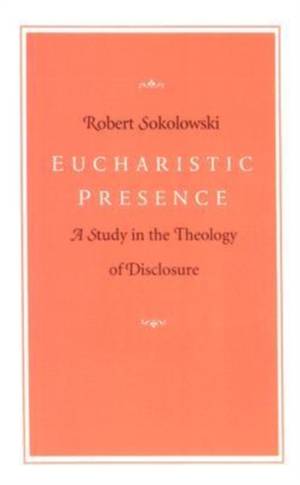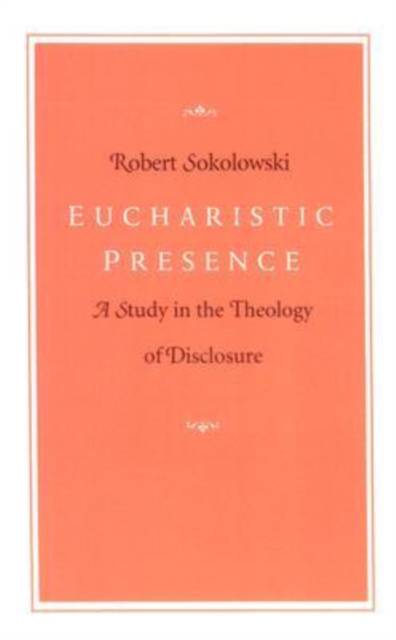
Door een staking bij bpost kan je online bestelling op dit moment iets langer onderweg zijn dan voorzien. Dringend iets nodig? Onze winkels ontvangen jou met open armen!
- Afhalen na 1 uur in een winkel met voorraad
- Gratis thuislevering in België vanaf € 30
- Ruim aanbod met 7 miljoen producten
Door een staking bij bpost kan je online bestelling op dit moment iets langer onderweg zijn dan voorzien. Dringend iets nodig? Onze winkels ontvangen jou met open armen!
- Afhalen na 1 uur in een winkel met voorraad
- Gratis thuislevering in België vanaf € 30
- Ruim aanbod met 7 miljoen producten
Zoeken
Omschrijving
In this insightful, interdisciplinary study, Robert Sokolowski uses the methods of phenomenology to examine Christian religious beliefs, particularly the sacrament of the Eucharist. In so doing, he comes to terms with many theological and cultural issues raised by modernity. Although the Eucharist is the center of focus, other issues in Christian faith are also examined, such as the Christian understanding of God, Creation, the Incarnation, Redemption, and biblical Revelation. Sokolowski employs a method that he calls "the theology of disclosures, " which studies the structures of appearance and should be distinguished from both positive and scholastic theology. He takes appearances as objective disclosures, not as mere psychological events. When discussing the Eucharist, he shows how it uses the form of quotation and how it draws on various temporal dimensions of human existence as it reenacts the sacrifice of Christ before the eternal Father. The author also considers how Christian belief differs from other forms of religion and from modern atheism. By demonstrating how the Christian understanding of God differs from other ways of understanding the divine, he attempts to show that Christianity is not simply one religion among many but the truth of religion. These deeper themes are explored as necessary contexts for the Eucharist, which could not be properly understood except against the background of the Christian understanding of God as eternal and as Creator and Redeemer. The author provides a comprehensive theological treatment of major issues in Christian faith and does so with categories that are appropriate to our present intellectual and cultural world. This study, which drawsupon the work of many classical and contemporary theologians, especially Hans Urs von Balthasar, makes an important contribution to speculative theology and Eucharistic studies. It will be of great use to theologians and philosophers, as well as to students of Christian philosophy
Specificaties
Betrokkenen
- Auteur(s):
- Uitgeverij:
Inhoud
- Aantal bladzijden:
- 247
- Taal:
- Engels
- Reeks:
Eigenschappen
- Productcode (EAN):
- 9780813207896
- Verschijningsdatum:
- 1/09/1994
- Uitvoering:
- Paperback
- Formaat:
- Trade paperback (VS)
- Afmetingen:
- 141 mm x 216 mm
- Gewicht:
- 358 g

Alleen bij Standaard Boekhandel
+ 74 punten op je klantenkaart van Standaard Boekhandel
Beoordelingen
We publiceren alleen reviews die voldoen aan de voorwaarden voor reviews. Bekijk onze voorwaarden voor reviews.











